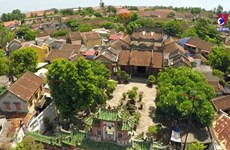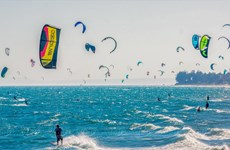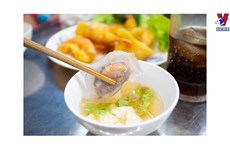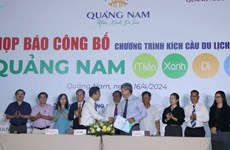Cham Island striving to become plastic-waste-free tourism site
Paper straws and glass cups are now used at all restaurants and outlets on the island instead of plastic ones.
At Tan Hiep Market, traders and customers have become used to banana leaf packaging and rattan baskets over the last decade. Plastic bags are not welcomed here anymore.
With a wide range of rare and valuable flora and fauna, the island was recognised as a world biosphere by UNESCO in 2009. Since then, islanders have paid due regard to cutting the consumption of single-use plastic bags. Most recently, dozens of business households signed a commitment to use environmentally-friendly products rather than plastic products.
As part of efforts to minimise the impact of tourism on the island, local authorities have limited the number of daily arrivals to 3,000. They have also worked closely with travel companies to develop eco-tourism products and promote the “Cham Island says no to plastic waste by 2025” project.
A “Zero waste” tour is to be piloted shortly, offering visitors a kaleidoscope of experiences in local culture and waste treatment processes. The two-day, one-night tour is expected to raise awareness about environmental protection on Cham Island.













